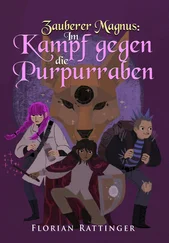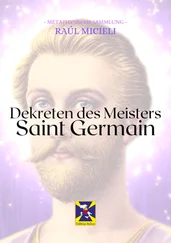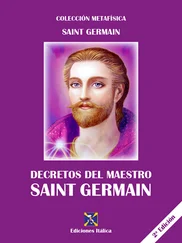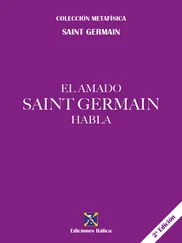Sylvie Germain - Magnus
Здесь есть возможность читать онлайн «Sylvie Germain - Magnus» весь текст электронной книги совершенно бесплатно (целиком полную версию без сокращений). В некоторых случаях можно слушать аудио, скачать через торрент в формате fb2 и присутствует краткое содержание. Год выпуска: 2008, Издательство: Dedalus Ltd, Жанр: Современная проза, на английском языке. Описание произведения, (предисловие) а так же отзывы посетителей доступны на портале библиотеки ЛибКат.
- Название:Magnus
- Автор:
- Издательство:Dedalus Ltd
- Жанр:
- Год:2008
- ISBN:нет данных
- Рейтинг книги:3 / 5. Голосов: 1
-
Избранное:Добавить в избранное
- Отзывы:
-
Ваша оценка:
- 60
- 1
- 2
- 3
- 4
- 5
Magnus: краткое содержание, описание и аннотация
Предлагаем к чтению аннотацию, описание, краткое содержание или предисловие (зависит от того, что написал сам автор книги «Magnus»). Если вы не нашли необходимую информацию о книге — напишите в комментариях, мы постараемся отыскать её.
Magnus — читать онлайн бесплатно полную книгу (весь текст) целиком
Ниже представлен текст книги, разбитый по страницам. Система сохранения места последней прочитанной страницы, позволяет с удобством читать онлайн бесплатно книгу «Magnus», без необходимости каждый раз заново искать на чём Вы остановились. Поставьте закладку, и сможете в любой момент перейти на страницу, на которой закончили чтение.
Интервал:
Закладка:
Despite its obvious merits, to my amazement it was not immediately taken up by any British publisher. Certain that it must eventually be published in English, and hoping that I might at least offer myself as the translator, every now and again I would check with Gallimard whether the rights had been sold.
In early 1990 I learned they had been — to the American publisher David R. Godine, based in Boston; the translation was supposedly far advanced and publication imminent. When I contacted Godine, happily for me this turned out to be untrue. I submitted a sample and was contracted to do the translation, to which Godine allowed me to retain the British rights. In the end Dedalus bought these and when I completed the translation in 1992 Dedalus were able to publish first, Godine bringing out their edition in 1993. It is greatly to the credit of these two independent publishers that they have made the work of a writer of the stature of Sylvie Germain available in English.
Publication of her first novel has been followed up over the intervening years with a considerable literary output: eight further novels, all of which have been published by Dedalus, as well as numerous collections of essays — on literature, art, aesthetics, ethics — and spiritual meditations, a literary portrait of Krackow, a reflection on the life of Etty Hillesum, and even a children’s book. Sylvie Germain’s writing is now the subject of increasing academic interest, not only in France and the UK but in university departments worldwide, from Pretoria to Haifa and Texas to Genoa, with doctoral theses, critical studies, conference papers, and entire conferences — in 2005 the Biennial Conference of the Association Européene François Mauriac held at Exeter University, and in 2007 the Colloque Sylvie Germain held at Cerisy-la-Salle in Normandy — devoted to the myriad aspects of her work.
Tackling the theme of evil — in the barely conceivable horror of the Holocaust, in the inhumanity of torture and its dehumanizing effect on the perpetrator, in the mindless and gratuitous act of violence, and in the complicity of the bystander who does not intervene — spanning over a hundred years of turbulent, war-torn, French and European history, and peopled with dozens of characters whose genealogy is traced through several generations, The Book of Nights and its companion volume Night of Amber are hugely ambitious in scope. Thereafter, the author’s focus closes in, becomes more concentrated: Days of Anger (winner of the Prix Femina 1989) and The Medusa Child explore the drama of perverted desire within what becomes, from one novel to the next, an increasingly nuclear family.
Published between the latter two books is The Weeping Woman of Prague , more of a novella or extended prose poem, in which a narrator observes and reflects on not so much a character as a ghostly presence haunting what might be regarded as the cultural heart of Europe, the genius loci , an emanation of the streets of the city which had by this time become the author’s home (she moved there in 1986) and place of work (teaching philosophy at the French school), and which was to provide the setting for two subsequent novels.
Against the backdrop of the collapse of communism and the cynicism and moral bankruptcy of the new order, the protagonists of Infinite Possibilities ( Immensités , 1993) and Invitation to a Journey ( Éclats de Sel , 1996), both of them intellectuals, lead bleak and cheerless lives without direction or sense of purpose. The world seems to conspire against them, and they do not at the outset have Job’s faith to sustain them in their trials and tribulations. There is a somewhat more metaphysical, cerebral dimension to the texture of this writing, in which the author’s fertile imagination, surprising inventiveness, and talent for story-telling nevertheless continue to find expression.
Her next novel, The Book of Tobias ( Tobie des Marai s, 1998), which moves from a Jewish shtetl in Polish Galicia to the Poitevin Marais, on the west coast of France (Sylvie Germain herself returned to France around this time), is a reworking of the biblical story of Tobias and the angel, taking the essential structure of it, mythopoeically weaving into it more recent, twentieth-century history, and grafting on to it a narrative of sometimes gothic quality reminiscent of her first novel. She explores the by now familiar themes of perverted desire, the self-destructive power of hatred, the need for forgiveness and compassion.
For Sylvie Germain, these remain inexhaustible themes. Her novels inevitably come to an end, but they never come to a conclusion.
‘The last word does not exist. There is no last word, last cry.’ ( The Book of Nights ).
The author never takes up a fixed position, never settles into complacency, but embraces the challenge of the open question, the constant search, of remaining ever the nomad of inner geographies, just like Laudes-Marie Neigedaoût of The Song of False Lovers ( Chanson des Mal-Aimants , 2002), which recounts the odyssey of the vagabond foundling whose whole life, ‘is but an approach, so zigzagging that sometimes I have gone backwards’ towards the blessing of a fleeting moment of enlightenment.
While Sylvie Germain has acknowledged that The Book of Nights perhaps contains in essence the seed of all her obsessions as a novelist, she has also described the writing of every novel as a totally new adventure, an experience that might be compared with embarking on a new love affair, and that if there were not that sense of adventure there would be no point in writing.
Each book begins with a mental image that by its very persistence begins to intrigue the author, and then goes through a long process of development, of maturation, with all kinds of feelings, emotions, thoughts, memories, ideas, personal experiences and external stimuli — things heard and seen and read, historical events, anecdotal stories — gradually crystallizing around it, defining it and making sense of it.
The image of Jacob wrestling with the angel was the germ from which The Book of Nights and Nuit-d’Ambre (Night of Amber) were brought into being, the story elaborated through this process unable to be contained within the confines of a single volume as the author strove to explain the origins of her character, and in so doing creating a sprawling, magic realist, dynastic saga, resonant with voices from the past.
With Magnus , the inspirational image is that of ‘a man, seen from behind, in a kind of impasse, in the dark’. The work of the novelist, dwelling on this image and seeking to give it substance, is reflected in the enterprise the main character himself must undertake, to create a history and an identity for himself, circumstances having contrived to rob him of both, while his tentative and patchy progress in this endeavour finds expression in the novel’s discontinuity and mosaic structure, composed of narrative fragments, quotations from other writers and eminent personalities — novelist, poet, dramatist, anthropologist, theologian or civil rights activist — snippets of social and historical commentary, potted biography.
‘Who’s there?’
In the first of her essays published under the title of Céphalophores , Sylvie Germain takes as her theme the opening words of Shakespeare’s Hamlet . ‘Who’s there?’ is the question that might be asked by any reader opening the pages of a book, but is also the challenge the author picks up in bringing out of the shadows the characters that people a text, writing being a way of satisfying a compelling curiosity, the desire to know more, to give texture and voice and movement to vague solicitous presences that intrude on the writer’s consciousness, claiming attention.
Читать дальшеИнтервал:
Закладка:
Похожие книги на «Magnus»
Представляем Вашему вниманию похожие книги на «Magnus» списком для выбора. Мы отобрали схожую по названию и смыслу литературу в надежде предоставить читателям больше вариантов отыскать новые, интересные, ещё непрочитанные произведения.
Обсуждение, отзывы о книге «Magnus» и просто собственные мнения читателей. Оставьте ваши комментарии, напишите, что Вы думаете о произведении, его смысле или главных героях. Укажите что конкретно понравилось, а что нет, и почему Вы так считаете.












